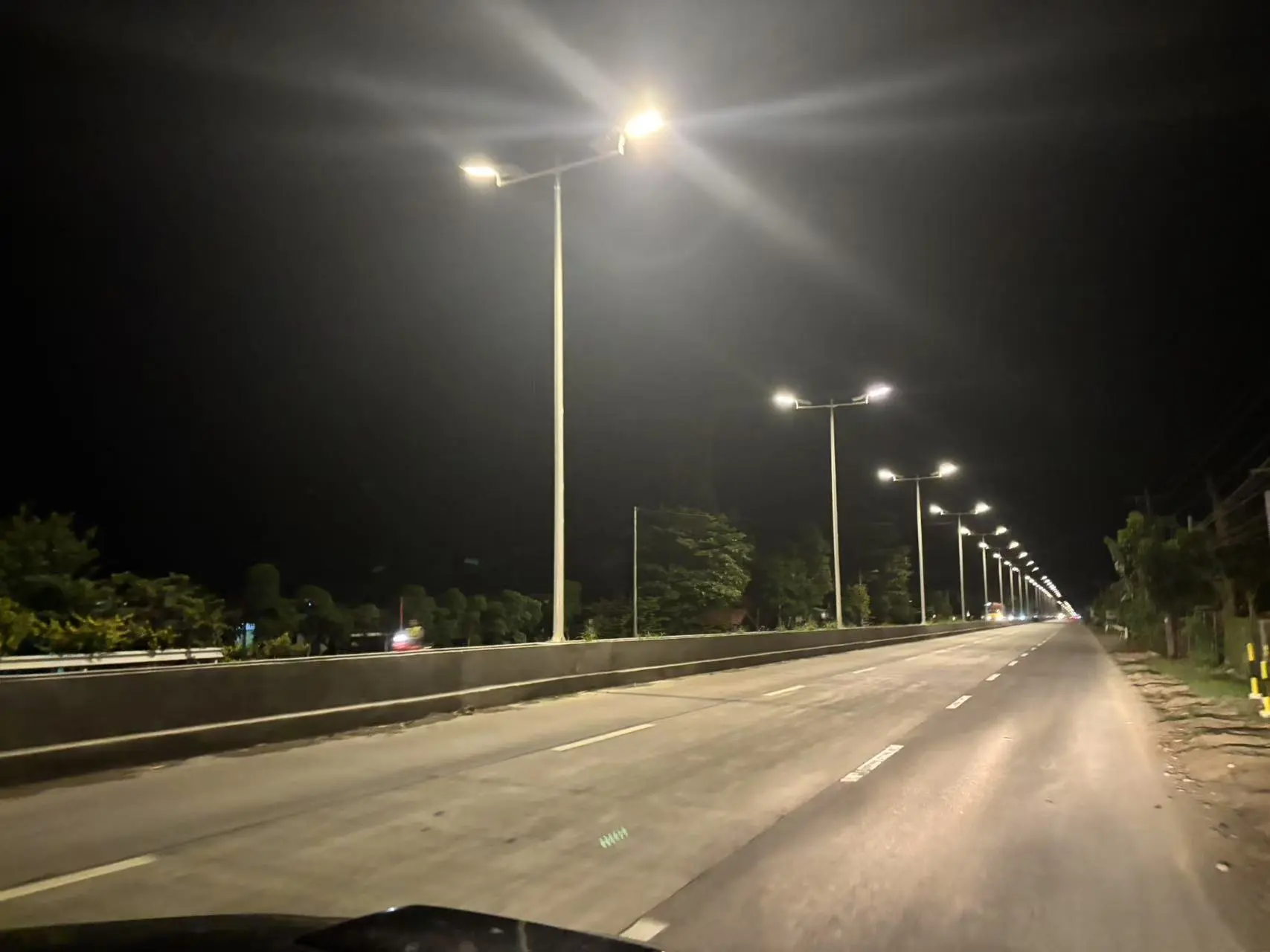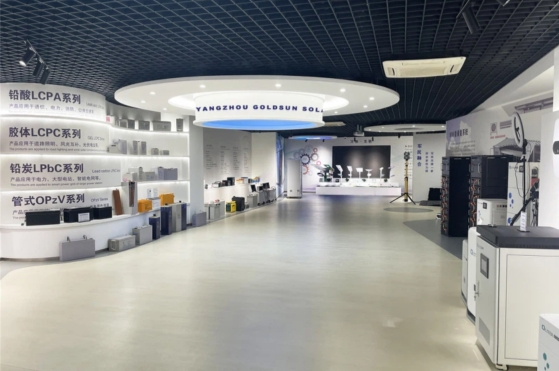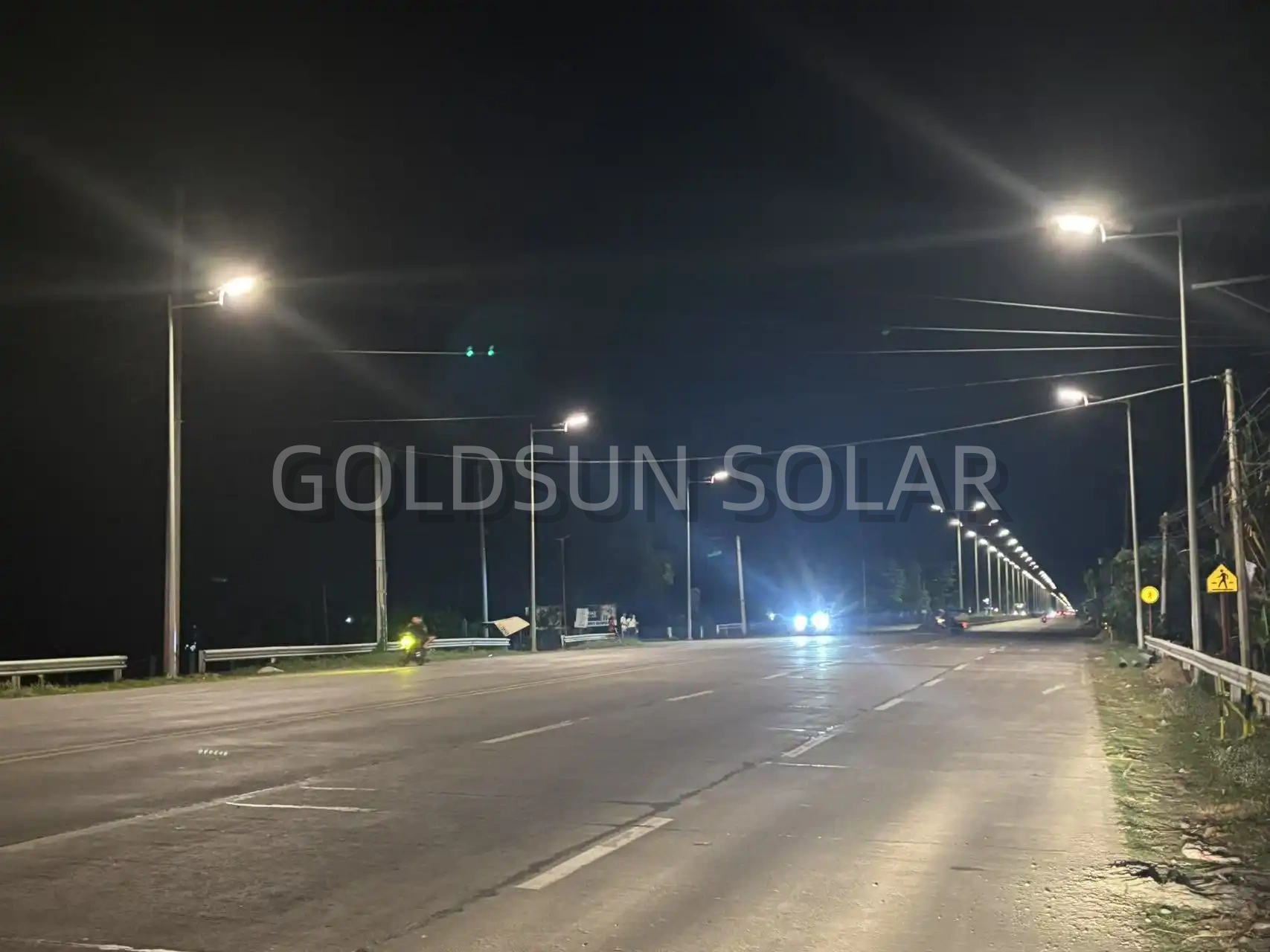How Nigeria's Rural Areas Benefit from Solar Street Lighting
Improved Safety and Security
The implementation of solar street light in Nigeria's rural areas has brought about a significant improvement in safety and security. Previously unlit roads and pathways are now illuminated throughout the night, deterring criminal activities and reducing the risk of accidents. This enhanced visibility has particularly benefited women and children, allowing for safer movement after dark and extending productive hours for local businesses.
In the village of Abuja, for instance, the installation of solar streetlights has led to a 40% reduction in reported night-time crimes. This dramatic improvement in security has not only enhanced the quality of life for residents but has also attracted small businesses to operate longer hours, contributing to local economic growth.
Enhanced Educational Opportunities
Solar street lighting has had a profound impact on educational opportunities in rural Nigeria. With reliable nighttime illumination, students can now study outdoors or in community centers after sunset, extending their learning hours. This is particularly crucial in areas where household electricity is scarce or unreliable.
A case study from the rural community of Ondo State revealed that after the installation of solar streetlights, there was a 25% increase in evening study groups and a corresponding improvement in academic performance among local students. This demonstrates how solar lighting solutions are not just about visibility, but about creating opportunities for personal and community development.
Government Policies Driving Solar Street Light Adoption in Nigeria
Federal Initiatives and Incentives
The Nigerian federal government has recognized the potential of solar street light and has implemented several policies to encourage its adoption. The Renewable Energy Master Plan (REMP) sets ambitious targets for increasing the share of renewable energy in the country's power mix, with solar energy playing a crucial role.
To support this vision, the government has introduced tax incentives for companies importing solar equipment, including components for street lighting. These incentives have significantly reduced the upfront costs of solar installations, making them more attractive to both public and private sector investors. The Rural Electrification Agency (REA) has also launched programs specifically targeting the deployment of solar streetlights in off-grid communities, further accelerating adoption in rural areas.
State-Level Implementation and Public-Private Partnerships
At the state level, several governments have taken proactive steps to embrace solar street lighting. Lagos State, for example, has implemented a "Light Up Lagos" project, which aims to install solar-powered streetlights across the state. This initiative not only improves urban infrastructure but also creates jobs in the renewable energy sector.
Public-private partnerships (PPPs) have emerged as a popular model for implementing solar street lighting projects. These partnerships allow state governments to leverage private sector expertise and financing while ensuring public benefit. In Edo State, a successful PPP has led to the installation of over 1,000 solar streetlights across major cities, demonstrating the effectiveness of collaborative approaches in driving sustainable urban development.
Cost Savings Breakdown: Diesel Generators vs. Solar Street Lights
Initial Investment and Long-Term Returns
While the initial investment for solar street lights may be higher than traditional diesel-powered alternatives, the long-term cost savings are substantial. A comparative study conducted in Kano State revealed that the upfront cost of installing a solar streetlight was approximately 30% higher than a diesel-powered equivalent. However, when factoring in operational costs over a 10-year period, the solar option proved to be 60% more cost-effective.
The breakdown of costs shows that while diesel generators require ongoing fuel purchases, maintenance, and eventual replacement, solar streetlights have minimal operational expenses. The lifespan of quality solar panels can exceed 25 years, with LED bulbs lasting up to 50,000 hours, significantly reducing replacement costs compared to traditional lighting systems.
Operational Efficiency and Environmental Impact
Beyond direct cost savings, solar streetlights offer operational efficiencies that translate into additional benefits. Unlike diesel generators, which require regular refueling and maintenance, solar streetlights operate autonomously, reducing labor costs and minimizing downtime. This reliability is particularly valuable in remote areas where maintenance can be challenging and costly.
The environmental impact of transitioning to solar street lighting is also substantial. A medium-sized Nigerian city replacing 1,000 diesel-powered streetlights with solar alternatives can reduce carbon emissions by approximately 2,500 tons annually. This not only contributes to Nigeria's climate change mitigation efforts but also improves local air quality, leading to potential health benefits for residents.
Conclusion
In conclusion, the adoption of solar street light in Nigerian cities represents a significant step towards sustainable urban development and economic efficiency. The 60% cost savings observed in lighting expenses is just one aspect of the multifaceted benefits this technology brings. From improving safety and educational opportunities in rural areas to aligning with national renewable energy goals, solar street light are illuminating a brighter future for Nigeria.
As more cities and states embrace this technology, the potential for widespread impact grows. The success stories from various regions of Nigeria serve as a blueprint for other African nations facing similar energy challenges. By investing in solar street lighting, countries can address multiple development goals simultaneously, from energy security to climate action.
For those interested in learning more about how solar street lighting can benefit your community or project, please contact us at solar@gdsolarlight.com. Our team of experts is ready to provide customized solutions that can help you achieve significant cost savings while contributing to a more sustainable future.



